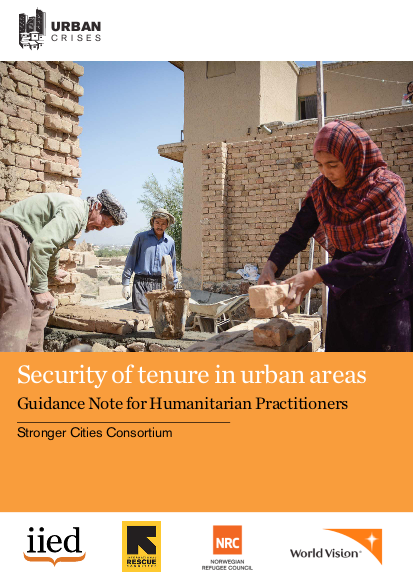Guidance Note for Humanitarian Practitioners

Since the majority of urban displaced live in informal settlements or in rental accommodation without formal lease agreements, tenure insecurity – the risk of forced eviction – is a defining feature of their lives (Special Rapporteur on adequate housing, 2015). Finding housing solutions in emergencies in large cities is extremely complex.
Given the co-existence of different tenure arrangements, the informalities of housing markets and the constantly changing environment of urban areas, there is a distinct need to understand the tenure systems that exist, along with the broader factors that accompany them (NRC and IFRC, 2015). However, there has been insufficient attention to security of tenure in humanitarian response (NRC and IFRC, 2015; IASC, 2010) and humanitarians operating in urban areas face many challenges in designing interventions that support security of tenure.
The emergence of new programming modalities in recent years, particularly in humanitarian shelter and legal assistance, has generated useful learning. This forms the basis for this guidance note which provides an overview of the key strategies for approaching tenure in urban humanitarian interventions. The aim is to assist humanitarians to consider ways to support security of tenure from the outset of a response.
Links
Resource collections
- Evaluating humanitarian action
- UN Habitat - Urban Response Collection
- Urban Response - Urban Crisis Preparedness and Risk Reduction
- Urban Response Collection - Community Engagement and Social Cohesion
- Urban Response Collection - Economic Recovery
- Urban Response Collection - Environment and Climate Change
- Urban Response Collection - Housing, Land and Property
- Urban Response Collection - Urban Crisis Response, Recovery and Reconstruction
- Urban Response Collection - Urban Resilience